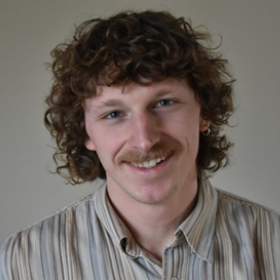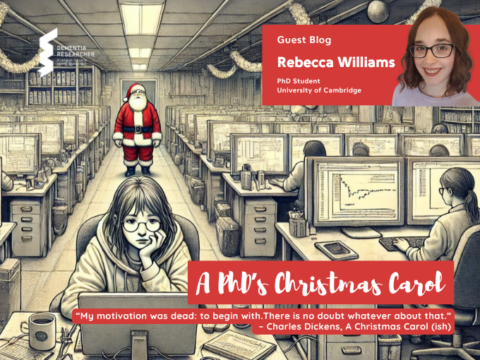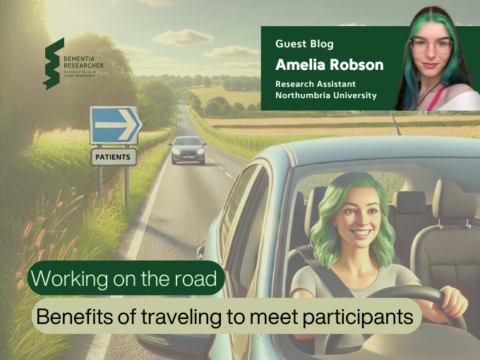Despite touching on the arts, consciousness, journalism, and a sense of self and wellbeing, this is certainly the ‘softest’ post, in, now, what is, the 6th post in my monthly blog series. Proofread and summarised by my partner as a “very, very original take on a day in the life.”.
It is interesting to reflect on (a)typical now as a PhD student, and although this narrative wasn’t an organic creation of self-reflection, and nor did I refer to Gibbs or any other reflective cycle, I found the process helpful to unpack what can become, one big blur. Most of it of course, not academically inspired:
“Why did I call my neighbours new-born ‘it’ as though [it] were some unwelcome inanimate object? Was it an over-reaction to have a daylight ‘barney’ with those littering teenagers? Why I am still annoyed that my efforts were ineffective as I received several hand gestures and painfully watched their empty can dribble out cola as it rolled down the high-street. I’m not their guardian… Should I have exercised my values more forcefully or perhaps mirrored their sleight of hand? Am I just presenting with some middle-aged behaviour, and by saying that am I now open to allegations of ageism? [Pause]”.
Who knows, perhaps now I will be more attuned to my everyday experience and the learning that can be had. Or I may just get (re)engrossed by the PhD and the wider World, which seems to be a constant squeeze on my sanity. I was meant to be exploring Montes de Málaga this week (picture provided unnecessarily), but omicron had other ideas.
People say, ‘reflection is an important yet ethereal skill’. The aim of this post is to prove its not ethereal at all, and clarify the imperfection in reflection through an evaluation of my (a)typical day.
5:50am
Partner gets up, showers, and brings me a cup of tea in bed around 6:30am. The latter may seem as ordinary as it gets, but this exchange is a fundamental part of my working week.
I get up at roughly 7am after drinking my tea, and occasionally I’ll write a few ‘Morning Pages’. All this branch of journalism means, is I wake up and the first thing I do (after I sip my cup of tea) is write down whatever comes into my head, until I’m blank minded. This is said to be a form of mindfulness, but all that sort of stuff doesn’t interest me. I just like the idea of tapping into a state of consciousness thinking each day that is less inflicted and influenced by externalities; as states of consciousness shape everyday experience and are interconnected with awareness. And to be fair, the practice has provided some pretty wild and unfounded statements that have been amusing if nothing else.
7:30am
I cycle to work, unless it’s lashing down, then I opt for four wheels. Admittedly though, it’s not saving money, or even the planet that gets me on that bike each day, it is the passive space cycling to work provides. I’m not really responding or resisting anything other than the road ahead, which is metaphorical in many ways.

A PhD can hurt your finances, sink you in debt, and leave you with no clear path to success in some fields. But PhDs statistically earn more than their and have lower unemployment rates.
8am-5pm
Reducing the first year of my PhD into something succinct for the purposes of this post oversimplifies a very much complex, unpredictable, and emergent process: a complex social intervention in its own right. But commonly I start by trawling through a copious number of emails. Most of which are publication updates. Academics reference ‘research waste’ and suggest we are ‘drowning in data’, and I now understand. My advice would be if it seems relevant or interesting read it, but if the contents aren’t making much sense, pie it for something more accessible.
As a PhD student you will quickly develop a collection of ‘ongoing work’, literature review, transcription, Gantt charts, and so on. I try and tackle these in half-day bouts to avoid stultification. Perhaps paradoxical, these fundamentals (reading and writing) are least conducive for reflection, and only more recently, when collecting data and writing reflections in my PhD diary, have I actually strategically reflected. I rarely know what I’ve been doing for 8-hours by 5pm, so the probability of remembering ‘why I changed my interview approach with certain stakeholders’ is likely to fade into the ether by February 2025. My advice is: be a consistently detailed diarist.
5pm
Opposite to riding into work, the short ride to freedom is more of a debrief than pacification. Assessing my achievements or/and shortcomings that day I may initiate some ‘next steps’. What I must say is: So what! I’m chronically quick to question my scholarly performance and prospects, which unmoderated, creates a clustering of unwanted and unnecessary (negative) thoughts. This inner ‘sense of discomfort’ is considered the first stage of reflection, embrace it.
The bicycle provides a space in which I can introspect and commonly conclude: So what if I stumbled over my words in a meeting, or don’t understand how to structure a thesis chapter. I’m living the dream, quite literally. Asking “So what?!” works surprisingly well at recentring myself in the here and now, articulated well in Andrew’s account.
5pm Onwards (and forwards)
ART! I try to ensure I spend at least one evening making art per week, whether that be print making, life drawing, or painting. A growing body of evidence demonstrates the positive impact arts can have on people, particularly those living with dementia, and similarly, I feel an enormous sense of self creating.
Wine! As Pope Francis observed:
“wine is many things. It has a bouquet, colour and richness of taste that all compliment the food. It has alcohol that can enliven the mind. Wine enriches all our senses.”
A glass or two each evening, complimented with something nutritious, is up there with the morning tea in terms of everyday fundamentals. I’m not advocating alcohol is beneficial, although some studies suggest small amounts per week can reduce risk of dementia, it’s a drug that causes significant levels of harm and economic burden, and in another world would be prohibited.
And finally. Sleep! Conceived the answer to immortality and one of the greatest public health challenges we face. If you’re not getting 8-hours your hippocampus capacity to learn new information could be around 40% lower than somebody getting 8-hours. In the context of ageing and dementia, as you age your sleep tends to get worse. Research has proven cognitive decline and poor-quality sleep are significantly interrelated, and disrupted sleep contributing to cognitive and memory decline is an underappreciated factor in ageing and Alzheimer’s disease.
Reflection enables revisions and development of assumptions about the world around us and our role in it. As a person who would have previously presented as an excellent ‘overthinker’ but problematically bad at reflecting, the process of writing this has enabled me to understand how I am pretty much constantly reflecting.
The aim of this post was to present the case that reflection can be meaningful without being waylaid by theory, levels, techniques, and types. I’m not actually sure I’ve achieved this aim, but if nothing else, I hope it provides amusement.
Nathan

Nathan Stephens
Author
Nathan Stephens is a PhD Student and unpaid carer, working on his PhD at University of Worcester, studying the Worcestershire Meeting Centres Community Support Programme. Inspired by caring for both grandparents and personal experience of dementia, Nathan has gone from a BSc in Sports & Physical Education, an MSc in Public Health, and now working on his PhD.

 Print This Post
Print This Post





